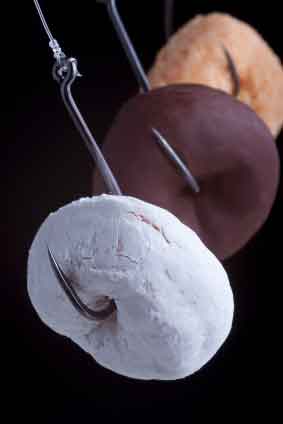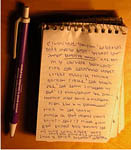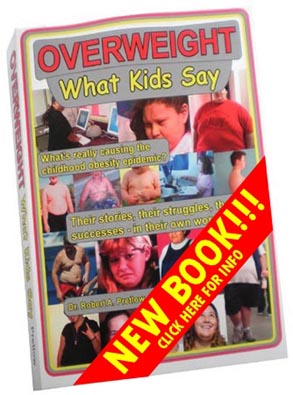Withdrawal from Food Addiction
What is it?
How to get through it
 Do you seek out the same foods over and over, despite knowing that they are full of calories and aren't healthy? Eating junk food and fast foods or lots of fatty, sugary, or salty snacks, will guarantee weight gain. It can be very difficult to cut out these types of foods from our diet when our bodies have become, in a sense, hard-wired to expect them. In a previous tip, we talked about being hooked on certain foods, or food addiction.
Do you seek out the same foods over and over, despite knowing that they are full of calories and aren't healthy? Eating junk food and fast foods or lots of fatty, sugary, or salty snacks, will guarantee weight gain. It can be very difficult to cut out these types of foods from our diet when our bodies have become, in a sense, hard-wired to expect them. In a previous tip, we talked about being hooked on certain foods, or food addiction.
What is Withdrawal?
Kicking addictions often requires going through a period of discomfort called withdrawal. Smokers and alcoholics who have tried to kick their habit, know what withdrawal feels like. Food withdrawal symptoms have some similarities. If a person suddenly stops using a substance (such as junk food) that their body has used for a long time, then the body will experience some uncomfortable feelings temporarily. This withdrawal usually lasts only for a week or two until the body adjusts to the new "normal" diet. Some kids may barely notice withdrawal symptoms, while other kids experience intense feelings. The varying experiences of withdrawal probably depend upon how addicted one is to their junk food.
Here are some of the feelings kids report when withdrawing from foods to which they describe being addicted. Please list any additional  symptoms you have experienced in our comments section at the end of this tip.
symptoms you have experienced in our comments section at the end of this tip.
anxious
antsy (can't keep still)
stressed
depressed
intense cravings
irritable
nervous
How to get through the withdrawal period successfully
Food withdrawal symptoms may occur when you try to cut out problem foods. You will have a better chance to overcome this difficult period by developing a strategy ahead of time to deal with the transition period. Kids have shared the following methods to help them get through withdrawal. Consider using some or all of them.
 Outline your reason to lose weight, in other words, your motivation
Outline your reason to lose weight, in other words, your motivation
Make a plan: foods to cut out (one at a time helps), distracting activities, exercise and start dates
View food more as fuel for the body and not so much as pleasure
Find people (parents and friends) to support and hold you accountable
Be conscious of your feelings when seeking food - write them down
Remove tempting foods from the house, or at least out of sight
Practice dealing with urges to snack
Associate problem foods with negative images
 Practice portion control
Practice portion control
Start getting
physical activity daily
Find stress relieving activities, besides eating, to cope with life's challenges
Help others lose weight
 You can find more details on how to use the above strategies by following the provided links and also reading an excerpt from the book, "Overweight: What Kids Say".
You can find more details on how to use the above strategies by following the provided links and also reading an excerpt from the book, "Overweight: What Kids Say".
In upcoming weeks, look for this related tip: How to prevent food addiction relapse - Maintaining the new you.

